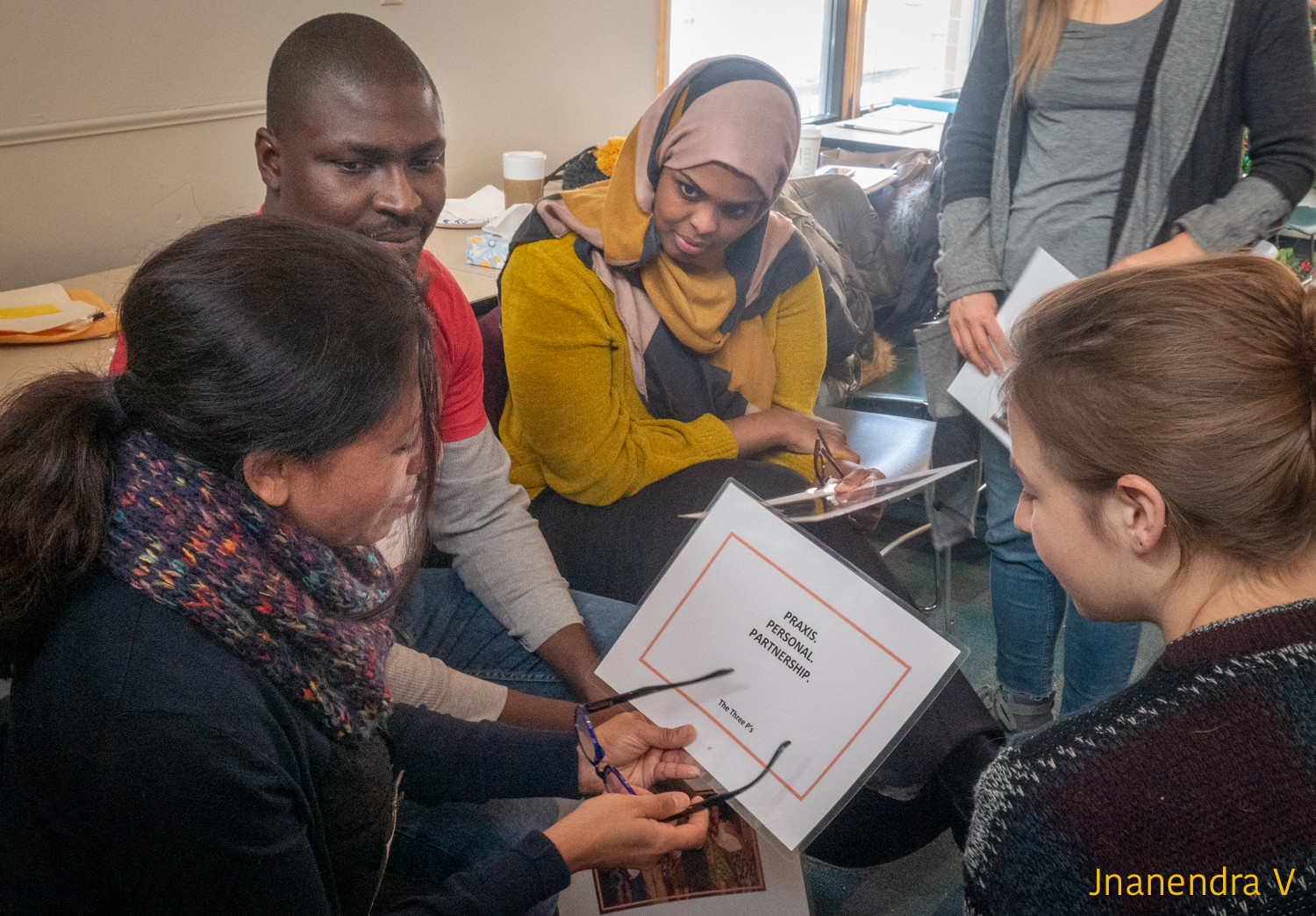
Social forces pervading societies throughout the world—such as racism, patriarchy, colonialism, and neoliberalism—impact the health of patients and communities. For example, the historical trauma of white settlement and on-going settler colonialism in the U.S. inflicts damage upon the minds and bodies of indigenous populations and generates diabetes, cardiovascular disease, and mental health disorders at levels that are amongst the worst in the country. Further, the dynamics and histories of these forces inhibit the establishment of trusting relationships between indigenous patients, non-native providers, and health systems. While health professionals increasingly acknowledge these connections, formal health professional curricula rarely dedicate adequate content examining these dynamics and how to effectively challenge these root causes of disease. Such material, if included at all, is often presented through lectures that fail to engage students or is facilitated by faculty without the proper preparation or comfort to facilitate such content. Students thus graduate with vague understandings of how social forces impact their patients’ health and the sense that they are either powerless to do anything about it or that it falls outside the scope of their work.
Social medicine offers a robust remedy to these training deficiencies. Social medicine starts with the premise that forces in our society generating wealth inequity, racism, and patriarchy deliver the largest and most fundamental blow to the health of communities. While the damage inflicted plays out at the most microscopic of levels in the human body, the origins of such forces are wide-ranging and found across our institutions and centers of power. Promoting the health and well-being of society, communities, and individuals, as health workers pledge to do, thus requires understanding the historical and current perpetuation of social forces that harm health. Social medicine demands the development of skills and tools that health professionals can utilize to support social change efforts targeted at the root causes of disease and illness in the places where they originate.
For the past ten years, I have been involved in teaching social medicine in Uganda and the U.S. and building a global movement called the Social Medicine Consortium. We have collectively developed curricula that incorporate content missing from traditional medical education on the social and structural determination of health. We have created engaging, experiential forms of education that draw on the teachings of the Brazilian educator Paulo Freire to center the voices of the marginalized and challenge hierarchical teacher-student relationships that suppress critical thinking. For example, in Uganda, we visit a historical site connected to the European conquest of Africa to examine how colonialism impacts the health of Ugandans today. In Minnesota, we participate in a Sacred Sites tour led by Native Americans that demonstrates how historical and on-going settler colonialism affects the health of Indigenous communities. In both course settings, we incorporate Theatre of the Oppressed, a teaching strategy that uses theatrical performance to identify the sources of social problems and rehearse strategic actions for social change.
In our courses, we regularly witness profound personal transformation of both our students and faculty. Last year, a psychiatrist in Minnesota expressed that the course taught him what he never learned in medical school about structural racism and capitalism and he emerged committed to social activism as part of his work. A Tanzanian resident physician expressed that she now felt powerful to change systems and promote health in her community. Despite many similar stories, we have not rigorously evaluated what causes these transformations, or how and why it happens.
As a Macy Faculty Scholar, I am working to deepen our understanding of how teaching social medicine transforms teachers, students, and communities. I aim to measure the impact of social medicine courses on the socialization of health professionals, their future career trajectories, and their ability to actively contribute to social change. In addition, I am further developing and testing new forms of critical pedagogy, an educational approach that challenges students and teachers alike to question and undo oppressive ideologies and practices. Ultimately, I seek to identify learning environments and educational platforms that best prepare health professionals to emerge from training capable of not only acknowledging social forces that harm the health of their patients but also responding to and partnering with communities to transform society in ways that advance health equity.
Photo Credit: Jnanendra Varma